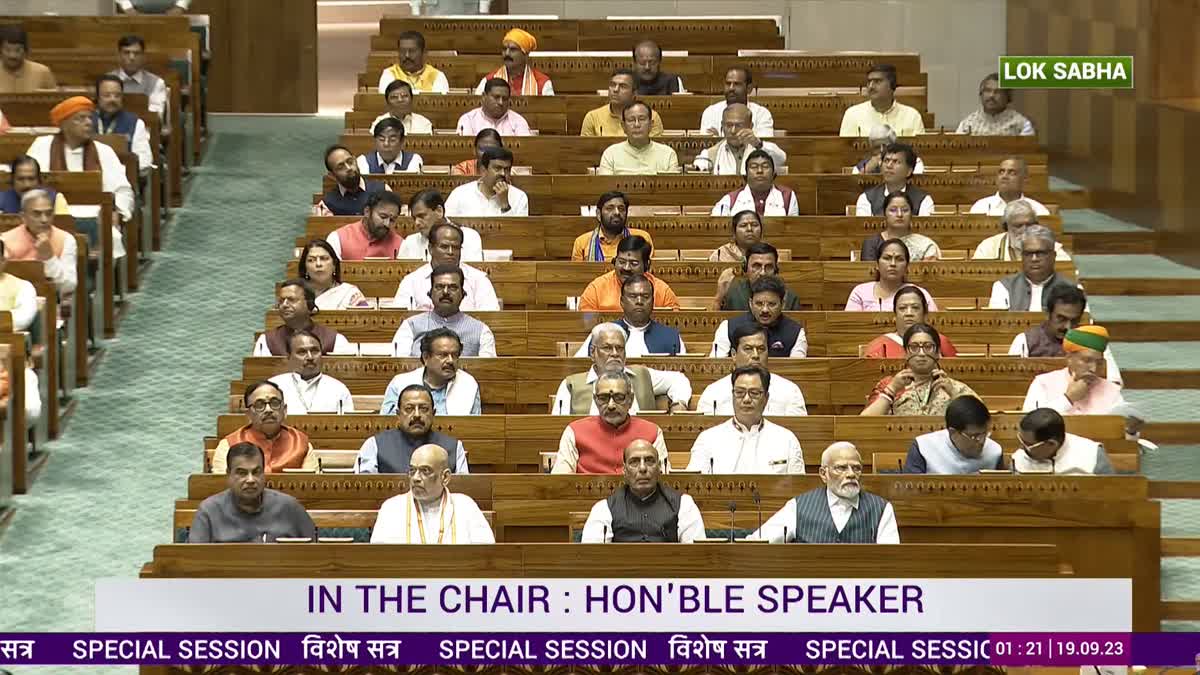New Delhi: The government on Tuesday listed the women's reservation bill in the Lok Sabha to provide one-third reservation to women in the Lower House of Parliament, state assemblies and the Delhi legislative assembly.
The Constitution (One Hundred and Twenty Eighth Amendment) Bill, 2023, was listed for introduction in the Lower House through a supplementary list of business.
This will be the first bill to be introduced in the new Parliament building.
The government said the women's reservation bill is aimed at enabling greater participation of women in policy-making at the state and national levels.
Vikasit Bharat- The statement of purpose of the bill said the role of women is extremely important for achieving the goal of making India a developed country by 2047.
The reservation will come into effect after a delimitation exercise is undertaken and will continue for 15 years. Seats reserved for women will be rotated after each delimitation exercise, according to the bill.
Objects and reasons in 4 points
- After completing 75 years of Independence, the nation has begun its journey into Amritkal with a goal of becoming Vikasit Bharat" by 2047. Realisation of this goal will require contribution of all sections of society in the spirit of 'Sabka Saath, Sabka Vikas, Sabka Vishwas, Sabka Prayas. The role of women, constituting a half of the population, is extremely important in realisation of this goal, the Bill said.
- Government has taken a number of steps to bring Nari shakti" to the forefront through women's empowerment and women led development resulting in substantial improvement in financial independence of women and availability of equal access to education and health. Government has also emphasised Ease of Living, especially of women, through various initiatives including Ujjawala Yojana, access to toilets under Swacch Bharat Mission, financial inclusion through the Mudra Yojna, etc. However, truc empowerment of women will require greater participation of women in the decision making process as they bring different perspectives and enrich the quality of legislative debates and decision-making, it said.
- While women participate substantively in the Panchayat Raj institutions and municipal bod their representation in the State Legislatures as well as in Parliament is still limited. Providing for higher representation of women at State and national level has also been a long pending demand. There have been several efforts to introduce women's reservation in the Lok Sabha and State Legislative Assemblies. The last such attempt was made in 2010, when the Rajya Sabha had passed a Bill for women's reservation, but the same could not be passed in the Lok Sabha, it added.
- In order to enable greater participation of women as public representative in policy making at State and national level, it is decided to introduce a fresh legislation for Constitutional amendment to provide for, as nearly as may be, one-third of total seats in the House of the People, the legislative assembly of every State and the Legislative Assembly of the National Capital Territory of Delhi to be reserved for women, the Bill said in its statement of Objects and reasons.



